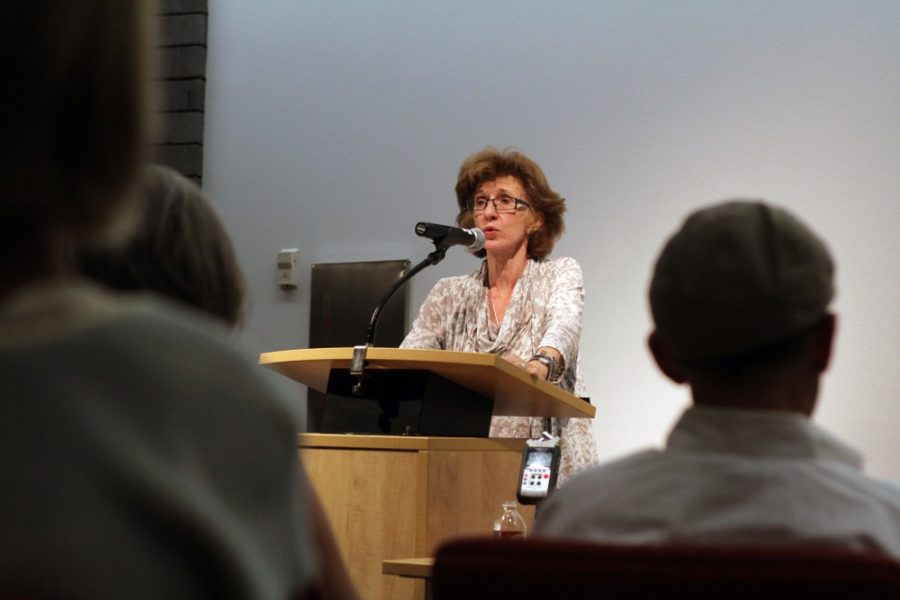“Damn, this is what we like to see,” said one middle aged woman, sitting behind me, to another as everyone settled in for C.D. Wright’s reading, “but damn,” they repeated in unison. It was accurate commentary for the full house the Poetry Center saw on Thursday. Rain was just starting to drizzle as volunteers were quickly setting up the last few supplemental chairs in the back of the breezeway.
Maybe it was just because this was the largest attended reading I’d been to at the Center, but there was an extra chatty air and a welcoming excitement about the enticing poet. People continued to trickle in as Former Director Gail Browne gave an introduction and received the Center’s patrons.
It’s been exactly 12 years since the Poetry Center has seen Wright, having last read in 2000. Author Kristi Maxwell introduced Wright, noting that the poet’s work made her feel fortified, and that her poems “locate us … find us …” Despite being sad they have the “possibility for reprieve” and “un-erase the erased.”
Wright read from her book titled “One with Others,” explaining, “it’s a thing of its own.” This work follows the life of Wright’s mentor, titled “V” throughout the poems. It speaks on Civil Rights movements in her home state of Arkansas, and follows V’s involvement in the 1969 March Against Fear, where black students were held in an empty swimming pool after an en masse arrest for demonstrating.
A small Southern accent was present in Wright’s voice, which placed her work in an audible fashion. She was practiced enough in reading that it was possible to tell the book’s different voices apart and was vocally animated. Wright was able to pull the crowd into laughter, make a quick somber turn, and then push out a knowing chuckle from the audience at the end.
Wright is an investigative poet, using research and resources to frame and create her poems. She uses verbatim “Dear Abbey” submissions always ending in, “What’s your problem.” There are a lot of lists in Wright’s work; she used a shopping list of sorts at one point, with food prices from the time period, to place the poem temporally and give the audience a sense of the environment.
She read quickly, efficiently, and approached her subjects straightforwardly. The details in her work are specific and grounding, but she managed to leave us with open-ended ideas — she leaves you feeling that something wasn’t quite right in what she just read. As we sat outside, with the monsoon wind drifting around all our thoughtful heads, I could feel her asking us to consider how to fix what seemed wrong.
Joyelle McSweeney and Zachary Schomburg will be reading at the Poetry Center on October 11, at 7 p.m. Visit http://poetry.arizona.edu/calendar-of-events for more information.
Follow us on Twitter @wildcatarts and follow Jeannie @jwwwood.









